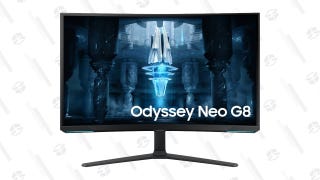
At an all-hands meeting on Thursday, Xbox addressed the growing employee concerns about labor conditions at Bethesda Game Studios and its parent company, ZeniMax. Matt Booty, head of Xbox Game Studios, said he was “confident” that the studio was not crunching, and that it was “unfair” to attribute crunch culture to only Bethesda.
In a Q & A, Booty was asked to address the Kotaku report from earlier this month which documented troubled working conditions at Bethesda and ZeniMax during the development of Fallout 76. He said that Xbox took crunch reports about its studios “seriously,” but added, “The challenge with a lot of these articles is that they look backwards, sometimes pretty far back in time.” While Kotaku’s report mentioned that crunch occurred on older productions such as Skyrim, it mainly addressed the crunch that took place in 2018 on Fallout 76.
Kotaku was able to independently verify the contents of this meeting by viewing a recorded video.
“Crunch culture is…if you go back 10 years ago, it’s a little unfair to put that on one studio,” said Booty. “It was just part of the industry. I don’t say that to justify it, I’m just saying it was part of the culture of the industry. I literally slept under my desk early in my career. And we looked at that like a badge of honor.“
Booty said that the working conditions detailed in the report were in the past. “I know from talking to Bethesda leadership that we do not have a situation where people are crunching and we’ve got this bullying atmosphere…I’m confident about that.”
G/O Media may get a commission

Samsung 32″ Odyssey Neo G8 Curved Gaming Monitor
32″ 4K display
Delivers 240Hz with 1ms response time for incredibly smooth gameplay. The Quantum Matrix Technology, HDR 2000, and UHD resolution all work together to create a crystal clear picture. The Matte display reduces glare helping keep your eyes focused on the action in front of you.
He acknowledged that crunch could still take place without his knowledge, and said that employees needed to trust in Xbox’s internal processes. He said that Xbox’s human resources department would be willing to listen to employee concerns, and that all studios had support groups for individual disciplines. “There’s avenues for them to report that anonymously back to us that goes through HR,” Booty said. ”We have to rely on those independent systems of checks and balances.”
Since the Xbox HR department is employed by Xbox, it could hardly be considered an “independent” entity.
The Xbox head said that overtime should only be kept to personal excitement and passion, and not a mandatory aspect of production scheduling. However, many ZeniMax testers who weren’t explicitly mandated to crunch had still worked overtime out of social and professional peer pressure. The crunch Kotaku documented took place before Xbox acquired ZeniMax and Bethesda. But the report noted that post-acquisition, Xbox had allegedly been a “hands-off” owner that typically did not make sweeping changes at newly acquired studios. At this week’s all-hands, Booty did not mention what actions Xbox would take if studios behaved in a way that did not align with his stated stance against crunch.
Kotaku reached out for comment to Matt Booty, Xbox, and ZeniMax, but did not receive a response at the time of publication.
Earlier this month, Kotaku published a report about the crushing working conditions behind the development of Bethesda’s multiplayer, open-world RPG Fallout 76. QA testers reported that they had worked 10-hour days, six days a week under precarious financial circumstances. They claimed that managers on the project had coerced them into working unsustainable amounts of overtime, which allegedly led many developers to quit the company. Former Bethesda employees said that Xbox took a hands-off approach to managing ZeniMax once the acquisition closed, frustrating workers who’d hoped that Microsoft would improve their employment benefits.
ZeniMax wasn’t the only Xbox-owned studio that allegedly received relative autonomy from the publisher. Former employees at Undead Labs also claimed that Xbox took a “hands-off” approach after acquiring that game studio. While it may seem good that the publisher is allowing acquired studios some operational freedoms, sources at Undead Labs worried that such permissiveness “allowed dysfunction to fester.”
As of early June, Microsoft has taken more overt public stances on game development labor. Last month, Xbox CEO Phil Spencer promised to recognize the Raven Software union once the Xbox acquisition of Activision Blizzard finalized. On June 2, Microsoft announced that it was willing to “collaborate” with labor organizations. While Microsoft certainly has to abide by local labor laws, the public statement holds the company publicly accountable for working with unions in good faith. Unlike an HR department, an employee union would actually constitute an independent entity from Xbox Game Studios.
However, Xbox has chosen not to publicly comment on the working conditions at ZeniMax Media since Kotaku’s report was initially published.
“As an employee what I’m taking away from this is that he’s saying to go through HR,” an anonymous Xbox employee told Kotaku. “And we know how that worked out at Blizzard.”

